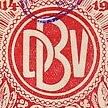The topic of this article may not meet Wikipedia's general notability guideline .(October 2019) |
The International Federation of Building Workers (IFBW) was a global union federation bringing together unions representing masons.
The topic of this article may not meet Wikipedia's general notability guideline .(October 2019) |
The International Federation of Building Workers (IFBW) was a global union federation bringing together unions representing masons.
The German Central Union of Masons gradually built up international contacts in the late 19th-century. In 1903, it called a conference in Berlin, to formalise these relationships by establishing an international trade federation. [1]
The federation was established as the Building Workers' International, and was based in Hamburg from its foundation. By 1925, most of its member unions had merged with the carpenters' unions in their country, and so it agreed to absorb the Carpenters' International. This gave it 26 affiliates, with a total of 756,059 members. [1]
On 1 April 1934, the federation merged with the International Federation of Wood Workers, to form the International Federation of Building and Wood Workers. [2]
The following unions were affiliated as of 1922: [3]
| Union | Country | Membership |
|---|---|---|
| Central Association of Construction Workers | Austria | 87,154 |
| General Union of Building, Furnishing and Other Industries | Belgium | 42,065 |
| Czechoslovakia | 42,413 | |
| Denmark | 5,074 | |
| Finland | 1,331 | |
| National Federation of Construction Workers | France | 6,353 |
| German Construction Workers' Union | Germany | 588,271 |
| Hungary | 23,249 | |
| Italy | 60,000 | |
| Luxembourg | 1,105 | |
| General Dutch Construction Union | Netherlands | 9,061 |
| Norwegian Union of Building Workers | Norway | 2,278 |
| Poland | 9,975 | |
| Romania | 2,390 | |
| Sweden | 3,999 | |
| Swiss Construction Workers' Union | Switzerland | 3,825 |
| National Federation of Building Trades Operatives | United Kingdom | 253,000 |
| General Workers' Union of Yugoslavia | Yugoslavia | 608 |

The World Federation of Trade Unions (WFTU) is an international federation of trade unions. WFTU was established in 1945 to replace the International Federation of Trade Unions.

The American Federation of Labor (AFL) was a national federation of labor unions in the United States founded in Columbus, Ohio, in December 1886 by an alliance of craft unions disaffected from the Knights of Labor, a national labor union. Samuel Gompers was elected the full-time president at its founding convention and reelected every year, except one, until his death in 1924. He became the major spokesperson for the union movement.

Public Services International (PSI) is the global union federation for workers in public services, including those who work in social services, health care, municipal services, central government and public utilities. As of November 2019, PSI has 700 affiliated trade unions from 154 countries representing over 30 million workers.

The International Federation of Building and Wood Workers (IFBWW) was a global union federation of trade unions in the building, building materials, wood, forestry and allied industries.

The Free Association of German Trade Unions was a trade union federation in Imperial and early Weimar Germany. It was founded in 1897 in Halle under the name Representatives' Centralization of Germany as the national umbrella organization of the localist current of the German labor movement. The localists rejected the centralization in the labor movement following the sunset of the Anti-Socialist Laws in 1890 and preferred grassroots democratic structures. The lack of a strike code soon led to conflict within the organization. Various ways of providing financial support for strikes were tested before a system of voluntary solidarity was agreed upon in 1903, the same year that the name Free Association of German Trade Unions was adopted.
The Structural Building Trades Alliance (SBTA) was an American federation of labor unions in the construction industry. It was founded in 1903 and existed until 1908, when it affiliated with the American Federation of Labor (AFL) and became the Building Trades Department.

The National Labor Secretariat was a trade union federation in the Netherlands from 1893 to 1940.
The National Federation of Building Trades Operatives (NFBTO) was a trade union federation in the United Kingdom, consisting of unions with members in construction and related industries.

The Miners' International Federation (MIF), sometimes known as the International Federation of Miners, was a global union federation of trade unions.
The International Federation of Boot and Shoe Operatives and Leather Workers was a global union federation representing unions of shoemakers and leather workers, principally in Europe.
The International Federation of Tobacco Workers (IFTW) was a global union federation bringing together unions representing workers involved in growing, processing or selling tobacco.
The International Union of Woodworkers (IUW) was a global union federation bringing together unions representing wood carvers, carpenters and joiners.
The International Secretariat of Stone Masons, also known as the International Secretariat of Stone Workers, was a global union federation bringing together trade unions representing stone masons, quarry workers and paviours.
The International Landworkers' Federation (ILF) was a global union federation bringing together trade unions representing agricultural and forestry workers.
The National Federation of Construction Workers was a trade union representing workers in the construction industry in France.

The German Union of Building Trades was a trade union representing construction workers in Germany.

The German Wood Workers' Union was a trade union representing carpenters, joiners, and related workers, in Germany.

The German Construction Workers' Union was a trade union representing building workers in Germany.
The Central Union of Masons was a trade union representing bricklayers in Germany.
The General Dutch Construction Union was a trade union representing workers in the construction industry in the Netherlands.